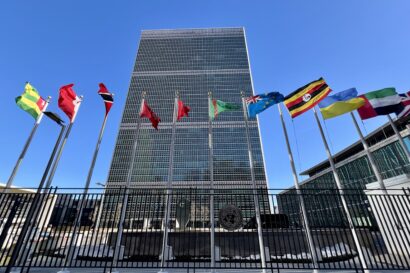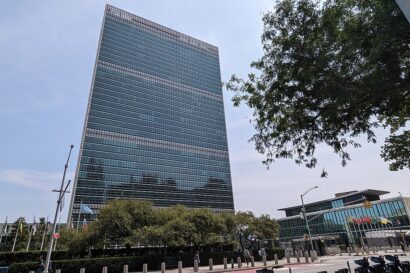In the wake of the global financial crisis of 2007-08, tax havens became a hot topic as political leaders zeroed in on exotic, low-tax jurisdictions as sources of fiscal instability that exacerbated the crisis. With the Covid-19 pandemic, tax havens have been even more immediately and strongly linked to the crisis and the prospects for economic recovery. This presents opportunities to capitalise on the renewed momentum to strengthen progressive taxation at the national level, and at the international level, to strengthen cooperation in the fight against tax havens. However, it also presents significant risks, as political leaders in the Global North pursue highly symbolic, low-impact actions that could leave developing countries worse off.
Tax havens firmly back on the agenda
In the context of high-profile global discussions on taxing the digital economy, tax havens had slipped somewhat into the background in global tax politics, with the only real focus at the level of the European Union, which (re)introduced its “blacklist” (or more precisely, its list of non-cooperative jurisdictions for tax purposes) in December 2017.
Yet the Covid-19 crisis has brought tax havens firmly back on the agenda, as political leaders around the world have proclaimed that firms using tax havens will not be allowed access to the large-scale relief packages agreed by governments. France, Denmark and Poland have already taken action to bar ‘tax haven companies’ from Covid-19 aid, and similar initiatives have been discussed in the US, the UK, Canada, and elsewhere.
This is in part to send a political message. Governments are using state power to force businesses to de-risk their global corporate structures for tax purposes if they wish to benefit from public crisis remedies. (This is a more general trend of governments’ abilities to entangle businesses through their global supply chains, described as “chained globalisation”). And it is in part a lever to strengthen, going forward, the state’s ability to ensure progressive taxation, by legally limiting and rhetorically discrediting the use of tax havens for capital flight.
A window of opportunity?
In this sense, the political response to Covid-19 could revitalise the political momentum that has enabled stronger progressive taxation of high-end income and of capital over the last decade, a particularly pressing agenda for developing countries now.
Limiting the risk of capital flight to counter the negative revenue impacts of tax havens is something governments can do, and have done increasingly successfully in recent years through strengthened international tax cooperation and expansion of information exchange agreements. Indeed, crises tend to galvanise calls for fairer and more progressive taxation – and this is what we are seeing now. Already leaders from the OECD and beyond have highlighted how the pandemic reaffirms the importance of dealing with tax havens, addressing harmful tax competition, and of reforming the global tax system.
This is very promising for developing countries, who suffer disproportionately from the existing international tax rules. In this globalised age, there is a critical need to reform the architecture of international taxation, which structurally disadvantages lower-income countries and exacerbates the weaknesses of their tax systems. The OECD has hinted that the post-Covid-19 period could be the right time to fundamentally re-examine “how international tax rules currently meet the needs of developing countries”. It would be a very positive outcome if the post-Covid-19 global tax agenda prompts such a re-examination and manages to reign in the abusive tax practices that cost developing countries millions in revenue each year.
Or will developing countries be collateral damage?
Still, there is also a real risk that developing countries will be left behind. So far, European initiatives are largely relying on the EU blacklist of tax havens. Currently, this list consists of 12 countries: American Samoa, Cayman Islands, Fiji, Guam, Oman, Palau, Panama, Samoa, Trinidad and Tobago, US Virgin Islands, Vanuatu, and the Seychelles.
The EU blacklist – like other, similar blacklists – has a fundamental problem: It is inherently political in reflecting geopolitical power imbalances and the pathologies of the international organisations that manage them. This means blacklists disproportionately target smaller states with little standing in global trade relations and with few geopolitical allies – including developing countries. This provides highly symbolic political wins, but limited systematic effectiveness. As the African Tax Administration Forum (ATAF) has pointed out, a “fundamental concern” for developing countries is the “perceived geopolitical, as opposed to the rational, nature of the listing processes and the coerciveness of the 2017 EU list of non-cooperative tax jurisdictions.”
In practice, the countries on the EU blacklist account for an exceedingly small portion of profit shifting to tax havens, according to multiple studies. As such, the impact of punishing firms for using corporate structures in the countries on the EU blacklist may well be limited. This is the case from the perspective of developed countries, but even more so for developing countries, who rely more heavily on corporate income taxes and thus have more to lose from ineffective action against corporate tax havens. Importantly, the EU blacklist also specifically fails to cover jurisdictions that pose the most substantial ‘tax haven’ risks to African countries, such as Mauritius.
The EU blacklist has already entangled 13 African countries – including Botswana, Namibia, and Morocco – forcing the use of scarce administrative and political resources on costly, time-consuming, and low-priority reforms. As Logan Wort, Executive Secretary of ATAF, told the UN panel on Financial Accountability, Transparency and Integrity this week, this raises the issue of the asymmetric balance between how developed and developing countries’ interests are represented in international tax policy.
The blacklist screens countries against a list of criteria including tax transparency (notably commitments to OECD-led international cooperation on information exchange and administrative assistance), fair taxation (presence of preferential or harmful tax measures), and implementation of anti-BEPS measures (compliance with BEPS project minimum standards).
While these are laudable criteria, the importance of their implementation in jurisdictions that pose significantly limited profit shifting threats in the global economy is questionable. This is an especially pertinent point in a context where developing countries’ fiscal systems and administrative capacities will be put to the ultimate test, requiring a different focus entirely to raise revenue for responding to the crisis. If reigniting the fight against tax havens after Covid-19 means increasing emphasis on the EU blacklist, with its inherent problems, limited effectiveness, and associated pressures on developing countries to divert away scarce resources, this would not be a positive outcome.
Tackling tax havens is likely to be high on the agenda in the aftermath of Covid-19. However, if reforms are to avoid leaving developing countries as collateral damage, careful consideration will be required, rather than simply slipping back into old, problematic habits.



